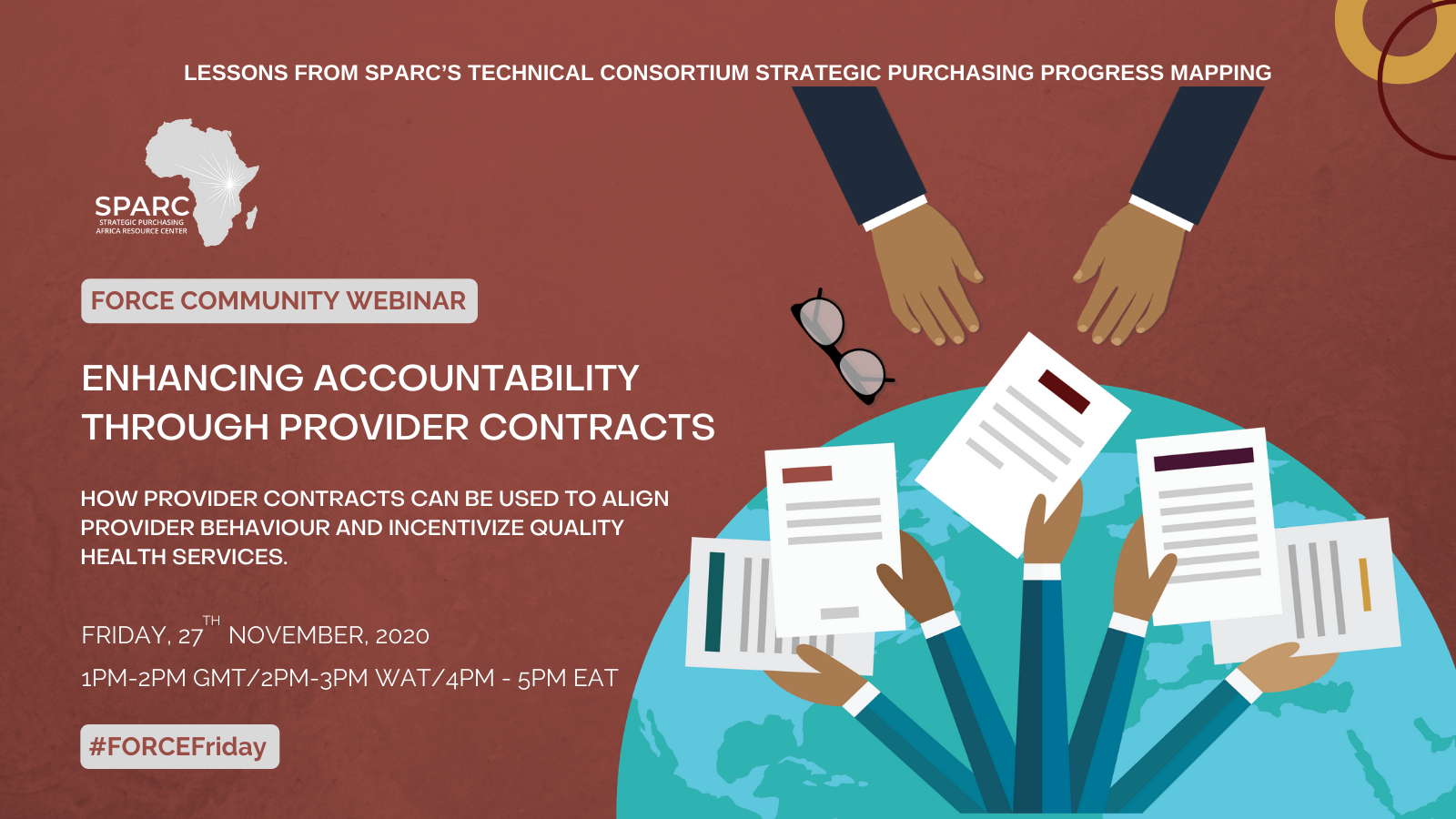Following the successful Twitter chat early this month, and the high level of interest from members of the FORCE, SPARC held a FORCE Community webinar on 27 November 2020. The session titled “Enhancing Accountability Through Provider Contracts in Sub-Saharan Africa”, was used to continue to build capacity for the coaching approach as well as strategic purchasing among FORCE members.
For more insight on the key messages from the Twitter chat, click here.
To discuss the subject, panellists focused on the first three pillars of the country engagement process, namely: Identifying and understanding the problem, evidence introduction, and solution selection.
Drawing from the experience of two African countries, the panellists, Dr Ama Fenny from Ghana and Jacob Kazungu from Kenya, used the country engagement process to highlight the roles of a coach and mentor in-country engagements, within the context of utilizing provider contracting to improve accountability in the health system.
Summary of Key Messages
- Provider contracts support the institutionalization of strategic purchasing.
- To effectively build local capacity for strategic purchasing, contracts, need to meet some key criteria. Contracts must be actionable, explicit, and backed by a regulatory framework with indicators for adherence. They must be time-bound and stipulate the criteria for renewal.
- Selective contracting has the potential to improve accountability and the provision of high-quality services.
- Purchasers can effectively link provider contract to health system objectives and accountability measures by sharing information, enforcing contracts requirements, maintaining a good relationship with providers, and contracting lower-level facilities.
- Some of the challenges affecting effective provider contracting include fraud and the lack of monitoring mechanisms by the purchaser due to capacity gaps which lead to accountability challenges.
- While some contracts may look good on paper, there are often bottlenecks such as weak accountability, lack of transparency and low quality of care, that can result in the breach of contract.
- Political economy drives the national agenda and, a coach can support countries to identify the root cause of the challenge affecting provider contracts. A coach can manoeuvre these challenges by utilizing soft skills like (listening, relationship building skills etc.) and introducing evidence to support policymaking.
- Stakeholder engagement is critical. A coach should ensure that all stakeholders are engaged to promote transparency and trust between all partners involved in the country policy reform process.
- While roles and responsibilities are assigned to all parties in contracting discussions, the purchaser often has more power. Patient voices should be strengthened and used to hold purchasers accountable. The Civil Society can also play a role in ensuring the voices of the patient are heard.

